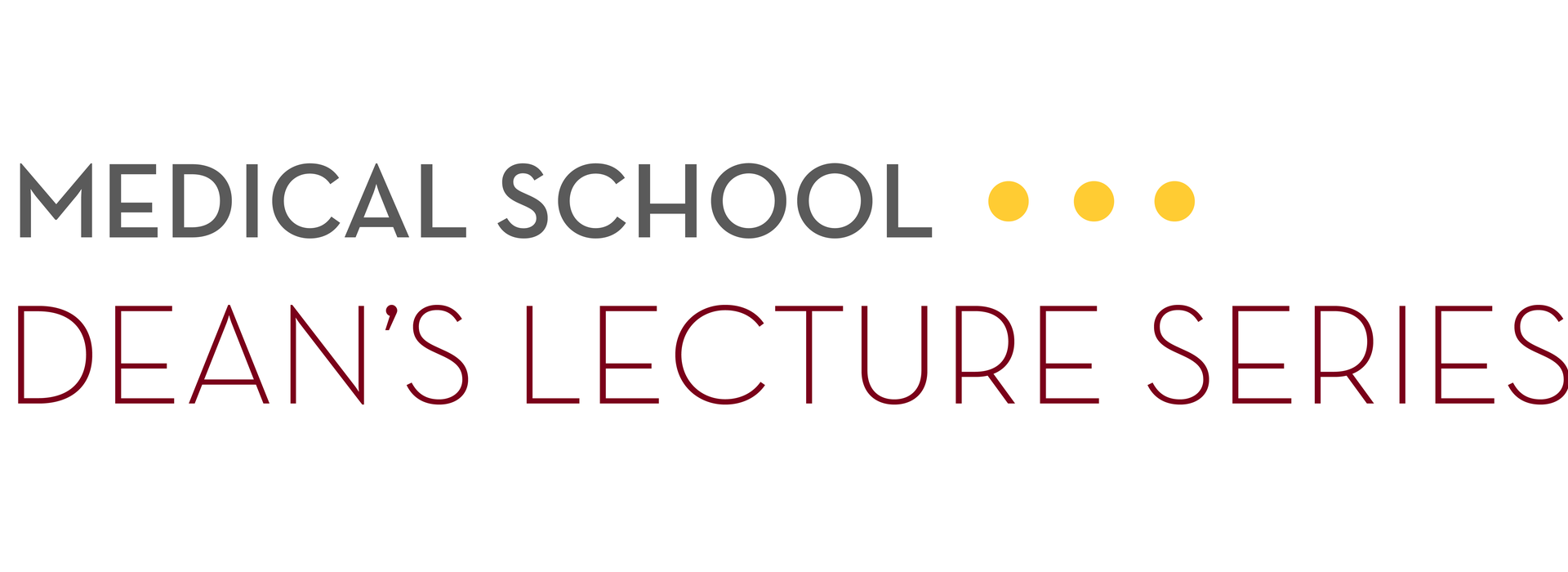
Medical School Dean's Lecture Series - Past Lectures
Past Lectures
View a list of our past lectures including information about the presenter, link to watch the lecture, as well as any additional resources provided below.
July 10, 2024: The Undercurrent of Implicit Bias in our Age of EMR Efficiency
Presenter: Alex Boucher, MD, Associate Professor, Department of Medicine, Division of Hematology, Oncology and Transplantation
About the Presentation: We all have implicit biases, but we aren't always aware that they can often be triggered by the more banal components of our everyday lives. For medical providers and staff, a hidden source for triggering implicit biases is the electronic medical record (EMR), our de facto method of recording medical interactions and decision-making. However, medical records are not static data points, but rather they convey often focal perspectives on patients and families for which future readers may not appreciate the clinical contexts. This presentation highlights this EMR bias blind spot and provides suggestions to reduce the subversive effects.
About Dr. Boucher: Dr. Alex Boucher is both an adult and pediatric hematologist and Associate Professor at the University of Minnesota. He received his medical school training at the University of Tennessee, followed by combined medicine and pediatrics residency here at Minnesota, and he did pediatric hematology/oncology fellowship at the Cincinnati Children's Hospital Medical Center. He currently leads the U of M's Sickle Cell Disease program across the lifespan and has been working to transform M Health Fairview's approach to sickle cell disease to be more person-centered and focused on health equity. His research is focused on identifying and addressing hidden sources of inequity in medicine and educating trainees on these topics.
June 12, 2024: Cultural Humility in Global Health: Checking Boxes or Bridging Gaps?
About the Presentation: Cultural humility has been defined as "active engagement in an ongoing process of self-reflection that informs deeper understanding and respect of cultural differences." Global health is a multidisciplinary field of research, education and practice that aims to improve health for all people in all nations. This presentation will discuss the relevance of cultural humility in global health and seeks to open a window of understanding into why we should do better.
Presenter: Nadia Sam-Agudu, MD, CTropMed; Professor in the Division of Pediatric Infectious Diseases & Faculty in the Department of Pediatrics
About the Presenter: Dr. Nadia Sam-Agudu is a clinician scientist and Professor of Pediatrics in the Division of Pediatric Infectious Diseases at the University of Minnesota Medical School. She did her medical training at Mayo Medical School and continued her training in pediatric residency and infectious diseases fellowship at UMN. She obtained further clinical and research training in Peru and Uganda. She has worked in Nigeria and other countries in West and Central Africa for nearly 15 years, implementing HIV programs and conducting implementation research. She currently serves as the Director of UMN's Global Pediatrics Program and is the Associate Dean for DEI for medical students through the Center of Multicultural Affairs and Engagement.
May 7, 2024: Healing our Systems Through Community and Solidarity
About the Presentation: Our healthcare system has been described more aptly as a “sick care” system. In this session, Dr. Chomilo will illustrate how the path to healing our healthcare system lies in community and authentic solidarity by reflecting on past and current efforts to address health equity.
Presenter: Nathan Chomilo, MD, Adjunct Assistant Professor of Pediatrics
About Dr. Chomilo:
The work of Nathan T. Chomilo, MD, has centered on the impacts early childhood intervention and healthcare access have on the long-term prospects of our children in addition to how physicians and health systems can address racial and health equity. He is the Medical Director for the State of Minnesota’s Medicaid & MinnesotaCare programs and practices as a general pediatrician with Park Nicollet Health Services and HealthPartners.
Dr. Chomilo also served as the State of Minnesota’s COVID-19 vaccine equity director and as a senior advisor on equity to the Minnesota Commissioner of Health. He is an executive committee member of the American Academy of Pediatrics (AAP) Section on Minority Health Equity and Inclusion, serves on the board of Reach Out and Read, and he is an Adjunct Assistant Professor of Pediatrics at the University of Minnesota Medical School.
He has been recognized by multiple organizations for his service and achievements:
- The City of Minneapolis Department of Civil Rights as a 2019 History Maker at Home recipientThe Minnesota Medical Association as the recipient of the 2021 President’s
- Award The Aspen Institute, which selected him to be an Aspen Ascend Fellow in 2022
- The University of Minnesota School of Public Health, whose graduating class selected him to be the invited keynote speaker for their 2022 commencement ceremony.
In 2023 Dr. Chomilo was also selected for the National Academies of Sciences, Engineering, and Medicine’s Committee on Improving the Health and Wellbeing of Children and Youth through Health Care System Transformation and named to The Lancet’s Commission on Antiracism in Solidarity.
April 10, 2024: Building a DEI Office for the Department of Medicine: What We Learned
April 10, 2024: Building a DEI Office for the Department of Medicine: What We Learned
Presenters:
- Shahnaz Sultan, MD, MHSc, Professor, Division of Gastroenterology, Hepatology, and Nutrition, Vice-Chair for DEI for Department of Medicine, University of Minnesota, Center for Care Delivery and Outcomes Research, Minneapolis VAHCS
- Cuong Pham MD, Assistant Professor of Medicine, Division of Hospital Medicine, Associate Vice Chair for DEI for Department of
Medicine, University of Minnesota
About the presentation: Fostering an environment of inclusive excellence and advancing the values of equity and diversity are critical to the academic mission of the University of Minnesota Medical School. In response to the events in 2020, the inaugural office of DEI within the Department of Medicine, the largest department in the Medical School was established. This presentation highlights the successes and challenges of the DOM DEI Office through the discussion of several initiatives including the creation of a Diversity Council and the development of a Faculty DEI Addendum.
March 13, 2024: The Cardiovascular Health of Women Across the Lifecourse
March 13, 2024: The Cardiovascular Health of Women Across the Lifecourse
Presenter: Mercedes Carnethon, PhD, Mary Harris Thompson Professor and Vice Chair of Preventive Medicine and Professor of Medicine (Pulmonary and Critical Care), Northwestern Feinberg School of Medicine
About the presentation: The objective of this talk is to discuss the current science around the evolution of cardiovascular diseases among women. As compared with men, women have a unique set of biological and social characteristics that are associated with the development of cardiovascular diseases. Dr. Carnethon will share data from epidemiological studies discussing these gender-specific factors and how they relate to the development of cardiovascular diseases and inform strategies for prevention.
Feb. 14, 2024: Options for All - Applying a reproductive justice lens to sexual health research and programming for Black youth
Presenter: Asari Offiong, PhD, MPH, Senior Research Scientist I at Child Trends
About Dr. Offiong: Asari Offiong, PhD, MPH is a Senior Research Scientist I at Child Trends within the Sexual and Reproductive Health area. As an adolescent health researcher and public health practitioner, she has a decade of experience in leading youth development programs and conducting mixed methods, community-based participatory research in urban settings. Dr. Offiong applies a strengths-based and youth-centered approach to research, including interests in reengaging opportunity youth (youth disconnected from school and work), preventing early substance use and promoting positive sexual and reproductive health among the most vulnerable, including expecting and parenting youth.
About the presentation: Adolescent pregnancy prevention efforts have been a huge success in recent years, as pregnancy rates are at an all-time low. However, the approach to adolescent pregnancy prevention has been stigmatizing toward young people, particularly Black youth and other youth of color. Instead, taking a reproductive justice lens to sexual and reproductive health is more youth-centered and creates an opportunity to challenge the status quo with new strides toward innovation as it relates to meeting the needs of youth through practice and policy. In this presentation, we will explore historical events related to sexual and reproductive health, what reproductive justice means for Black youth, and how we can amplify and prioritize it in our current work.
Jan. 13, 2024: Strategies to Effectively Engage
Presenter: Ana Núñez, MD, FACP, Vice Dean for Diversity, Equity and Inclusion and Professor of General Medicine at the University of Minnesota Medical School
About Dr. Núñez: Dr. Núñez is a nationally recognized as a medical education and health services researcher, having developed novel curricula in the areas of sex and gender medicine, primary care, trauma/violence prevention and cultural competence. She received her Bachelor of Science in Chemistry from Wilkes University and her Doctorate in Medicine from Hahnemann University. She has fellowships in medical education from Michigan State University and health services research from the Association of American Medical Colleges (AAMC). Dr. Núñez also serves as chair of AAMC's Group on Diversity and Inclusion.
About the presentation: This session is designed to highlight practical approaches to connect across differences, better align and connect as team members, promote person-centered problem solving and impart radical compassion to ourselves and each other as we showcase and uplift what matters and who matters. Spoiler alert—it is all of us!
Dec. 13, 2023: Fostering Diversity and Inclusion for Staff in the Medical School: The Staff Advancing Diversity and Inclusion (SADI) Committee
Presenters:
- Shawn Jarvis (He/Him), Finance Professional 4 in the Department of Medicine and SADI Committee Chair
- Maryanne Reilly-Spong (She/Her), Psychologist in Medical Education in the Office of Student Affairs and SADI Co-Chair
- Gina Finical (She/Her), Fellowship Administrator in the Department of Pediatrics and SADI Co-Lead for Events and Education Subcommittee
- Barb Daiker (She/Her), Department Administrator in the Department of Psychiatry and Behavioral Sciences and Chair of the SADI Recruitment and Retention committee
- Shelby Gill (She/Her), Business Operations Manager for the Division of Gastroenterology, Hepatology and Nutrition in the Department of Medicine and SADI Communication Subcommittee MemberDerek Hersch (He/Him), Research Services Manager in the Department of Family Medicine and Community Health and SADI
- Affinity Groups Leader
About the presentation:
Creating a learning environment that reflects, embraces and supports the diversity of its community is paramount in academic medicine. This grassroots effort, initiated by dedicated volunteer staff members, has since become a driving force in cultivating an inclusive culture.
SADI's mission is to identify, create and support initiatives to advance the values of equity, diversity and inclusion for University of Minnesota Medical School staff, both on the Twin Cities and Duluth campuses.
We aim to inspire Medical School staff to participate in SADI events, volunteer to join their peers as a committee member, increase their fluency in cross-cultural topics and engage with our diverse community to advance this work while participating in dialogue with colleagues.
This presentation invites you to gain insights into SADI’s current initiatives and the impactful work carried out by its subcommittees. Discover how SADI works to foster a more inclusive and representative learning environment in the Medical School.
Nov. 8, 2023: American Indian / Alaska Native Workforce Development: Challenges and Opportunities
Presenters:
About the presentation: American Indian Residential Schools were founded on Captain Richard Henry Pratt’s, founder of Carlisle Indian School philosophy of, “Kill the Indian in him, and save the man.” The effects of this assimilation strategy continue today. According to the 2021 Educational Attainment report, American Indian/Alaska Native students in Minnesota have the lowest graduation rates of any population at 56%. Even more alarming is that American Indians have the lowest attainment rate at 28.6%, while the overall rate for people 25-44 in Minnesota is 62.6%.
In this presentation, presenters will review persistent inequities American Indian/Alaska Natives face due to federal Indian policies surrounding education and workforce development. Presenters will also provide an overview of the 12 Tribal communities in Minnesota and conclude with Native-led solutions for addressing the challenges facing American Indian/Alaska Natives who aim to enter the healthcare workforce.
About the presenters:
Mary Owen, MD, is a member of the Auk Kwaan Tribe of the Tlingit people. She is the Associate Dean of Native American Health at the University of Minnesota Medical School. Upon graduation from the U of M Medical School and Family Practice Residency Program, she returned home to work for her tribal community in Juneau, Alaska. In 2014, after eleven years of full-scope family medicine, she returned to the University of Minnesota Medical School, Duluth as the Director of the Center of American Indian and Minority Health (CAIMH). Her work includes developing regional and national programs to increase the numbers of American Indian and Alaska Native (AIAN) students entering medical careers, connecting with local and national Native leaders to ensure that the U of M Medical School remains in tune with AIAN healthcare and education needs, teaching medical students and health care providers important components of providing healthcare to AIAN communities and developing research efforts to address AIAN health disparities. She continues to provide clinical care at the Center of American Indian Resources in Duluth and is the immediate Past-President of the Association of American Indian Physicians.
Amanda Dionne is a member of the Northern Cheyenne Tribe and from the Turtle Mountain Band of Chippewa Indians and was born and raised in the Twin Cities. She graduated from Augsburg University in 2011 with a degree in Business Management and Business Economics while completing two years of service as an Americorps member. Throughout her career, Amanda has served in various roles in community development, public health, tribal policy, community outreach and engagement, K-12 education and student support. In February 2023, Amanda started her role as the Assistant Director of the Center of American Indian and Minority Health at the University of Minnesota Medical School.
Oct. 11, 2023: Diversity, Equity, and Inclusion (DEI) Structural Transformational Pilot Grants
Presenters:
- Mojca Remskar (She/Her), MD, PhD, Professor, Residency Director and Executive Vice Chair, Department of Anesthesiology
- Katie Lingras (She/Her), PhD, LP, Associate Professor and Director for Inclusive Excellence and Well-Being, Department of Psychiatry and Behavioral Sciences
- Sima Patel (She/Her), MD, Assistant Professor, Department of Neurology
About the presentation: Diversity, equity and inclusion (DEI) have emerged as essential pillars of contemporary organizations and communities especially within academic medicine and the broader healthcare sector. Acknowledging the urgency of addressing systemic disparities, this presentation will focus on the impactful outcomes from a series of Structural Transformational Pilot Grants (STPG) projects aimed at advancing DEI. These grants represent a dynamic approach to catalyzing lasting change as they focus on civility codes, recommendations for inclusive and equitable promotion and tenure in academic medicine, and understanding the DEI chair/lead experience at our Medical School.
This presentation will explore the key objectives, methodologies and outcomes of these DEI-focused pilot grant initiatives. By funding innovative projects that promote inclusivity and diversity at their core, we will showcase how small-scale investments can drive structural transformation across organizations and beyond.
Additional presentation information:
STPG project teams:
- Civility Codes
- PI: Mojca Remskar, MD, PhD
- Co PI: Ezgi Tiraky
- Equitable Promotion & Tenure in Academic Medicine
- PI: Katherine Lingras, PhD, LP
- Co PIs: An Church, MD, Anjali Goel, MD, MPH, Coung Pham MD, Shahnaz Sultan, MD, and Andrea Westby, MD
- Understanding the DEI Chair/Lead Experience at UMN MS
- PI: Sima Patel, MD
- Co PI: Katherine Lingras, PhD LP
About the presenters:
Mojca Remskar, MD, PhD, is a cardiac and pediatric anesthesiologist and educator who has interests in education with simulation. She believes the best patient care and healthcare education can be delivered in diverse, equitable and inclusive environments. Dr. Remskar currently holds several titles, including: Professor, Residency Program Director, and Executive Vice Chair, Department of Anesthesiology; Interim Vice Chair of Academic Anesthesiology, Minneapolis VA; Medical Director, M Simulation; Medical Director, MVAHCS Simulation Center; and Medical Director, University of Minnesota Medical Center East Bank OR.
With experience and expertise at the intersections of early childhood mental health research, practical applications and policy implications, Katie Lingras, PhD, LP, specializes in social-emotional development in early and middle childhood with particular emphasis on children experiencing behavioral concerns or who have experienced traumatic events. In the Department of Psychiatry and Behavioral Sciences, Dr. Lingras co-directs the Early Childhood Mental Health Program, serves as the Director of Inclusive Excellence and Well-Being, and she also co-founded the department’s DEI committee in 2017. In addition to outpatient treatment and assessment, her work is centered on community-based collaboration with pediatric primary care clinics and early childcare programs, where she also regularly conducts trainings that link together DEI and children’s mental health (e.g. talking with children about race and racism). Dr. Lingras also co-directs the DEI Thread within the Undergraduate Medical Education curriculum, and from 2021 to 2023, she chaired the Medical School DEI Council through the Office of Diversity, Equity, and Inclusion.
Sima. I. Patel, MD, is an assistant professor in Neurology at the University of Minnesota Medical School. Since 2012, she has been a full-time clinician focusing on complex epilepsy management with surgical interventions and pharmacological treatments at the University of Minnesota Physicians/MINCEP Epilepsy Care program. Dr. Patel earned her undergraduate degree in community health and health administration from the University of Illinois Urbana-Champaign and her medical degree from Rush Medical College. She completed her neurology residency training at the Medical College of Wisconsin, and a two-year epilepsy fellowship at Cleveland Clinic Foundation. She is passionate about resident education, female physician empowerment, epilepsy research pertaining to women with epilepsy, and epilepsy clinical therapeutic trials.
Sept. 13, 2023: Diversity, Equity and Inclusion Thread Directors Update
Sept. 13, 2023: Diversity, Equity and Inclusion Thread Directors Update
Moderator: Betsy Murray (She/Her), MD, MPH, Assistant Professor, Department of Pediatrics
Presenters:
- Brian Muthyala (He/Him), MD, MPH, Assistant Professor of Medicine
- Tseganesh Selameab (She/Her), MD, FACP, Internal Medicine Physician and Community Advocate
About the presentation: Dr. Muthyala and Dr. Selameab will speak to the history of the diversity, equity and inclusion curriculum at the University of Minnesota Medical School, focusing on challenges, opportunities and successes. The session will also explore how the curriculum has evolved to center the voices of historically underrepresented communities and patients and tackled topics like implicit bias, race-based medicine and structural inequities in healthcare while also working to support all students in their growth to be better physicians.
About the presenters:
Dr. Muthyala is an internal medicine and pediatrics hospitalist at Hennepin Healthcare and Assistant Professor at the University of Minnesota Medical School. He is committed to developing educational content on health equity and social justice that centers historically marginalized communities while promoting wellbeing and community mindedness amongst future physicians. He has a background in trauma-informed and trauma-mitigating clinical practice and education and works to create safe environments for his patients who have a lived experience of trauma or oppression. He is a graduate of the U of M Medical School and completed his internal medicine and pediatrics residency at the U of M.
Tseganesh Selameab, MD, FACP is a wife and mother of three amazing girls who practices internal medicine in St. Paul with a focus on refugee and immigrant populations as well as urban-underserved and community-based advocacy. Storytelling and narrative medicine has been a part of Dr. Selameab’s medical journey for many years, and she has been invited to share her written work at the U of M Medical School White Coat ceremony, regional medical conferences, and she has participated in several local and national storytelling events.
Aug. 9, 2023: Upward & Onward: Maintaining Our Values in ODEI
Aug. 9, 2023: Upward & Onward: Maintaining Our Values in ODEI
Presenters: Feature Panel of ODEI Center and Unit Leaders
About the presentation: Learn more about the impactful work happening within the Medical School’s Office of Diversity, Equity, and Inclusion (ODEI) centers and units and how you can be involved in helping achieve our Medical School's goals toward diversity, equity, inclusion and health equity for the communities we serve
July 12, 2023: Medical School DEI Community Outreach Programs: Present and Future
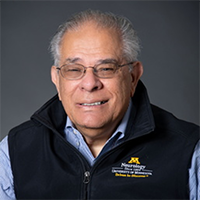
Presenter: Miguel Fiol, MD, Associate Professor, Department of Neurology
About Dr. Fiol: Miguel Fiol, MD, is a neurologist and professor at the University of Minnesota Medical School. Based on his experience over many years as coordinator of several volunteer Latino health/social organizations, he wishes to share his vision of a DEI-based community partnership to serve communities underrepresented in medicine.
About the Presentation: In this session, Dr. Fiol will expand on the Medical School’s current diversity, equity and inclusion (DEI) community partnership initiatives and programs, and he will propose new ideas for community engagement and development.
June 14, 2023: Combat Casualty Care: Lessons for Care in Rural Settings (and Vice Versa)
Presenter: Greg Beilman, MD, Associate Dean for DoD Research and Partnerships, Director of the Translational Center for Resuscitative Trauma Care (TCRTC), Professor in the Department of Surgery
About the presentation: Our field has seen significant advances in combat casualty care over the last two decades as a result of investments in care for patients injured during operations in Iraq and Afghanistan. These advancements have also helped inform improvements in civilian trauma care in several of ways. Predictions for future conflicts include major changes in the environment to provide care, which in many ways mirrors challenges in providing care in a rural settings. Dr. Bielman will discuss what's ahead in his presentation, and how clinicians and trainees can put it into future practice for our state.
May 10, 2023: Can We Do Better in the Next Pandemic? Ethics, Law and Medicine
About the presentation: The COVID-19 pandemic has posed immense challenges in our health care institutions and communities, raising ethical, legal, public health and clinical care issues. Concerns about disparities and health equity have been pervasive. This event brings together a multidisciplinary group of experts who participated in shaping pandemic response in Minnesota beginning early in 2020. The goal of this conversation is to consider successes and failures, in order to learn from the COVID-19 experience. Profs. Susan Wolf and Debra DeBruin at the U co-led the Minnesota COVID Ethics Collaborative (MCEC), working with partners across the state and the Minnesota Department of Health to create ethics frameworks for equitable allocation of scarce resources and transitions from conventional and contingency care to crisis conditions. Dr. Maria Veronica Svetaz at Hennepin Healthcare and the U was deeply involved in clinical response and participated in MCEC work, applying her expertise in health equity and family medicine. Dr. Jeffrey Dichter at the U brought long experience in disaster preparedness, including work with the Agency for Strategic Preparedness and Response/HHS, to leadership of the Minnesota Critical Care Working Group. Together they will discuss the pressing question, can we do better in the next pandemic?
Presenters:
Susan M. Wolf, JD, (moderator) is Regents Professor, McKnight Presidential Professor of Law, Medicine & Public Policy, Faegre Baker Daniels Professor of Law, and Professor of Medicine at the University of Minnesota. She is Chair of the University’s Consortium on Law and Values in Health, Environment & the Life Sciences. Prof. Wolf is an elected Member of the National Academy of Medicine, Fellow of the American Association for the Advancement of Science, Member of the American Law Institute, and Fellow of The Hastings Center. Her research has been funded by NIH, NSF, the Robert Wood Johnson Foundation, and others. She has served on numerous advisory bodies – including for the National Academies, NIH, and the U.S. Department of Health and Human Services – and co-led the Minnesota COVID Ethics Collaborative 2020-22. Her work focuses on legal and ethical issues in research, clinical care, and emerging technologies.
Debra DeBruin, PhD, is Director and Associate Professor in the Center for Bioethics and Associate Professor in the Department of Medicine, University of Minnesota. Her expertise is the ethics of public health and health policy, with a sustained focus on the ethics of disaster preparedness and response, and health equity. She has extensive experience developing ethics guidance for public health emergency response. Prior to the COVID-19 pandemic, she co-led the Minnesota Pandemic Ethics Project and the project to develop ethics guidance for the state of Minnesota’s crisis standards of care framework. From 2020-2022 she served as co-lead of the Minnesota COVID Ethics Collaborative, a multi-disciplinary group that worked in partnership with the Minnesota Department of Health (MDH) and the Minnesota Hospital Association to develop statewide ethics guidance for COVID-19 response. Her publications in the scholarly literature on ethical issues in public health emergency planning include a focus on ensuring fairness for at-risk populations by addressing health disparities and access barriers, as well as on community engagement. Prior to joining the Bioethics faculty at the University of Minnesota, she served as a health policy fellow for the Health, Education, Labor and Pensions Committee of the United States Senate, and as a consultant to the National Academy of Science’s Institute of Medicine and the National Bioethics Advisory Commission.
Maria Veronica Svetaz, MD, MPH (she, her, ella) is a cisgender, immigrant (originally from Argentina) Latine Family Medicine physician at Hennepin Healthcare Department of Family and Community Medicine, and Associate Professor at the Department of Family Medicine, at the University of Minnesota Faculty at the LEAH (Leadership Education in Adolescent Health) Program at the Department of General Peds. She has been the Society for Adolescent Health Diversity Committee Chair and she is now a SAHM Board of Directors. She has been on several MN Health Equity related initiatives. She considers herself a Scholar on both Health Equity and Adolescent Health.
Jeffrey Dichter, MD, is an associate professor of medicine at the University of Minnesota and an expert in Disaster preparedness. He has served as an executive committee member of The Task Force for Mass Critical Care, a national/international multidisciplinary organization of clinical and academic experts with several consensus statements and COVID-19 publications. He has worked with the Agency for Strategic Preparedness and Response/HHS, a member of the University of Minnesota containment unit, and was the chairperson of the Minnesota Critical Care Working Group and is an expert on Minnesota's response to the COVID-19 Pandemic.
April 12, 2023: Keeping Progress in Our Sights: Opportunities to Improve DEI Efforts in Eye Banking
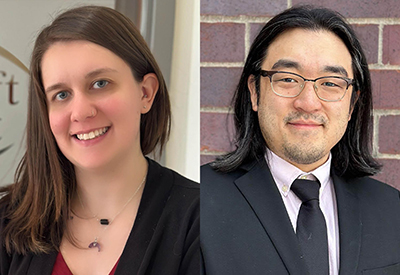
Presenters:
Jolie Schmidt (she/her), CEBT, is the Donor Eligibility Manager with Lions Gift of Sight. She is also one of the co-chairs and founders of the Lions Gift of Sight Equity, Diversity and Inclusion Committee.
Sung Lee is a Research Scientist at Lions Gift of Sight, with focus on processing and distributing research tissues to academic and biotech institutions striving to cure eye diseases and developing new therapies. In addition, he has conducted studies aimed to improve the quality and delivery of corneal transplant tissues. He is currently a member of Lions Gift of Sights Equity, Diversity and Inclusion committee.
About the presentation: Eye banks and other anatomical donation agencies face unique challenges when addressing diversity, equity and inclusion (DEI) efforts as they focus on moving the needle both inside their organizations and in the communities they serve.
In this session, Jolie will outline some of the opportunities for improvement that Lions Gift of Sight uncovered during the formation of their own DEI Committee. Methods of eye care and therapies have made exponential advancements thanks to improvements in technology, but the ceiling for progress can be even higher by promoting DEI in eye donation. Sung will discuss the importance of DEI in ophthalmic research.
March 8, 2023: Speaking of Race: Creating Meaning Through Media
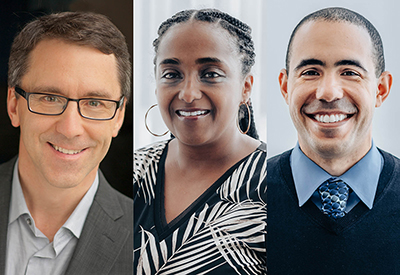
Presenters:
Jon Hallberg, MD, is a professor in the Department of Family Medicine and Community Health at the University of Minnesota Medical School. He is also the creative director and founder of the medical school's Center for the Art of Medicine. Dr. Hallberg maintains a busy clinical practice at the M Physicians Mill City Clinic, an award-winning light- and art-filled space he helped design.
Tseganesh Selameab, MD, FACP (pronouns she/her) is a wife and mother of three amazing girls who practices internal medicine in St. Paul, with a focus on refugee and immigrant populations as well as urban-underserved and community-based advocacy. Storytelling and narrative medicine has been a part of Dr. Selameab’s medical journey for many years and she has been invited to share her written work at the University of Minnesota Medical School White Coat ceremony, at regional medical conferences, and has participated in several local and national storytelling events.
Anthony Williams, MD, MS is a Med-Peds hospitalist at HealthPartners who splits his clinical time between Regions and Children’s Minnesota. He is an Associate Director of CFAM. He is also an Associate Program Director of the Med-Peds residency program at the University of Minnesota. He is passionate about creative writing and the power of narrative expression to cultivate resilience.
About the presentation: In 2021, in response to the murder of George Floyd and the ensuing social unrest, the Center for the Art of Medicine (CFAM) worked with Twins Cities Public Television (TPT PBS) to create a one-hour program, "Art + Medicine: Speaking of Race." This show, with a focus on storytelling, was carefully curated and showcased over 30 BIPOC physicians. It was picked up for national distribution, had education content created around it and won a regional Emmy Award in October 2022. In this presentation, three of the curatorial team members will describe the process they went through, from concept to finished product, to work with the media to make something both meaningful and beautiful.
Learn more about and view the "Art + Medicine: Speaking of Race" program.
Feb. 8, 2023: Inequity Kills: Taking the Statement to Heart in Social Medicine Practice
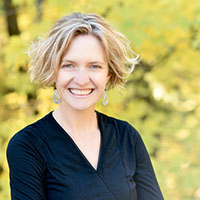
Presenter: Amy Finnegan, PhD, Associate Professor in Justice and Peace Studies and American Culture and Difference at University of St. Thomas
About Dr. Finnegan: Amy Finnegan, PhD is an Associate Professor in Justice and Peace Studies and American Culture and Difference at the University of St. Thomas where she teaches courses pertaining to conflict transformation, social movements, active nonviolence, qualitative methods, sociological perspectives on health, and social justice broadly. Her scholarly interests pertain to the white savior complex, critical race theory, degrowth, abolition, dialogue, and transformative pedagogies. She is on the leadership team of EqualHealth, a global grassroots health justice collective which strives to build critical consciousness and collective action globally in pursuit of health equity for all.
About the presentation: This presentation will introduce the praxis of social medicine, drawing on the lived experience of EqualHealth. Dr. Finnegan will share personal and scholarly work pertaining to the white savior complex and how we may move through it towards authentic global solidarity. The session will include a discussion of collective efforts to address root causes of ill health, such as racial capitalism.
Jan. 11, 2023: Nice (Alone) Is Not Enough. Thriving, Shining Your Light: Strategies to Achieve Mission Based Inclusive Excellence
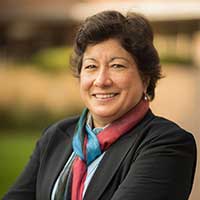
Presenter: Ana Núñez, MD, FACP, Vice Dean, Diversity, Equity and Inclusion, Professor of Medicine, Division of General Internal Medicine, and Integration Strategist, Clinical and Translational Science Institute (CTSI)
About Dr. Núñez: Ana Núñez, MD, FACP, is a Professor of General Internal Medicine and Vice Dean for Diversity, Equity and Inclusion at the University of Minnesota. She received her Doctorate in Medicine from Hahnemann University and Bachelor of Science in Chemistry from Wilkes University. She has fellowships in medical education from Michigan State University and health services research from the Association of American Medical Colleges (AAMC). She is nationally recognized as a medical education and health services researcher, having developed novel curricula in the areas of sex and gender medicine, primary care, trauma/violence prevention and cultural competence.
About the presentation: In this session, Dr. Núñez will highlight practical strategies to promote inclusion in our day-to-day work, and attendees will leave knowing how to:
- Delineate the limitations of relational harmony
- Identify their personal relational power/influence and role it has within culture
- Provide tips and strategies to disrupt the default and be intentional in actions
- Develop action steps that promote inclusion
Dec. 14, 2022: Why Mentoring Matters for Developing Diverse, Equitable and Inclusive Organizations
Presenter: Audrey J. Murrell, PhD, Professor of Business Administration at University of Pittsburgh.
Dr. Murrell is a Professor of Business Administration with secondary appointments within the Department of Psychology and the Graduate School of Public and International Affairs at University of Pittsburgh. In her academic and administrative capacities, she engages in research, teaching and consulting to help organizations better utilize and engage their most important assets– human and social capital. Prior to her current appointments, Dr. Murrell served as the Acting Dean of the University of Pittsburgh’s Honors College, Associate Dean within the College of Business Administration and as the Director of the David Berg Center for Ethics and Leadership. She received her BS from Howard University, magna cum laude, and her MS and PhD from the University of Delaware. She is the author of several publications including: “Mentoring Dilemmas: Developmental Relationships within Multicultural Organizations” (with Faye Crosby and Robyn Ely); “Intelligent Mentoring: How IBM Creates Value through People, Knowledge and Relationships” (with Sheila Forte-Trummel and Diana Bing); and “Mentoring Diverse Leaders: Creating Change for People, Processes and Paradigms” (with Stacy Blake-Beard).
About the presentation: In this session, Dr. Murrell and participants will examine evidence-based methods for enhancing the effectiveness of organizational diversity, equity and inclusion with a particular focus on leadership development. Using examples from organization-sponsored leadership development efforts, this interactive discussion will also unpack the unique circumstances of mentoring diverse leaders in scientific fields through the lens of diversity as a key motivator to support knowledge-sharing, community collaboration and innovation.
Nov. 9, 2022: DIVERSITY, EQUITY AND INCLUSION (DEI) INITIATIVES IN THE DEPARTMENT OF ORTHOPEDICS & AN OVERVIEW OF THE DEPARTMENT OF LABORATORY MEDICINE AND PATHOLOGY COMMITTEE ON DEI
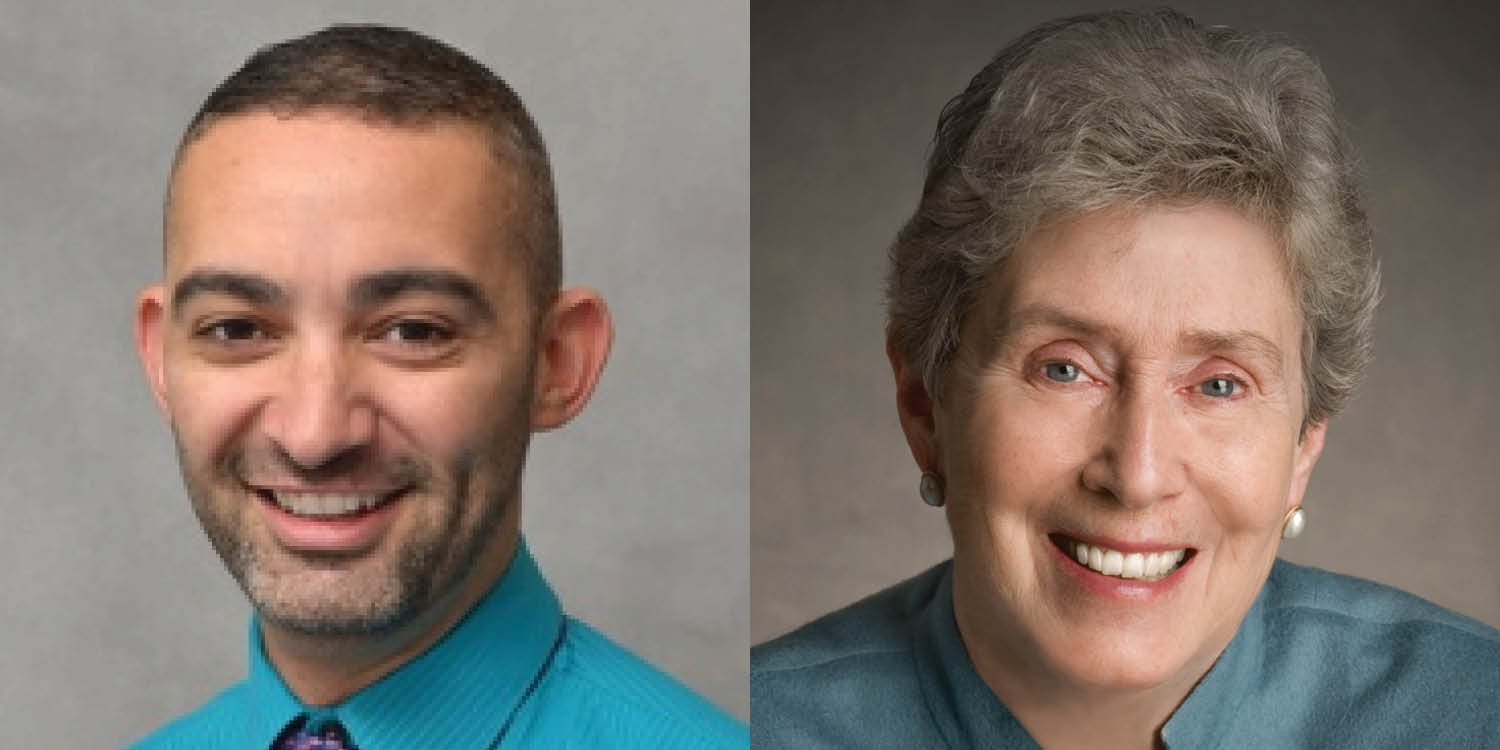
Presentation #1: Diversity, Equity and Inclusion (DEI) Initiatives in the Department of Orthopedics
Presenter: Aaron Corfield, DPM, Assistant Professor in the Department of Orthopedics, University of Minnesota Medical School
About Dr. Corfield: Dr. Corfield has implemented DEI work into his professional career since completing his undergraduate studies. Most recently, he has served as a commissioner on the Minneapolis Commission of Civil Rights, a board member of Reclaim, which is a queer and trans aligned mental health organization for the Twin Cities, and he was the inaugural chair of the University of Minnesota Medical School’s DEI Committee. He currently serves as a co-chair of the Department of Orthopedics’ DEI committee.
About the presentation: Dr. Corfield has been implementing DEI initiatives into his professional work throughout his career, and he will lead this discussion on new DEI initiatives within the Department of Orthopedics. As co-chair of the department’s DEI committee, he will share key learnings from implementing these new actions for us to apply across our community.
Presentation #2: An Overview of the Department of Laboratory Medicine and Pathology Committee on DEI
Presenter: Deborah E. Powell, MD, Professor, Department of Laboratory Medicine and Pathology, Dean Emerita, University of Minnesota Medical School
About Dr. Powell: Dr. Powell is a professor in the Department of Laboratory Medicine and Pathology where she has served as the Director of Medical Student Education and currently serves as chair of the department’s DEI committee. Dr. Powell has led our community as Dean of the U of M Medical School from 2002 to 2009, and she is a member of the National Academy of Medicine. In addition to receiving the Association of American Medical College (AAMC) Award for Excellence in Medical Education (formerly the Abraham Flexner Award), Dr. Powel has served as Chair of the AAMC Board, Chair of the AAMC Council of Deans and as a member of the Herbert Nickens Award committee.
About the presentation: Dr. Powell will draw on her experience leading the Medical School as she presents on the Department of Laboratory Medicine and Pathology Committee on DEI’s ongoing projects in addition to sharing plans the committee has for the short- and long-term future.
Watch the presentations here.
View the transcript here.
View the slides from Dr. Powell's presentation here.
Oct. 11, 2022: Building a Scholastic Community That Supports the Advancement of Underserved Students Into the Careers of Medical and Biomedical Research
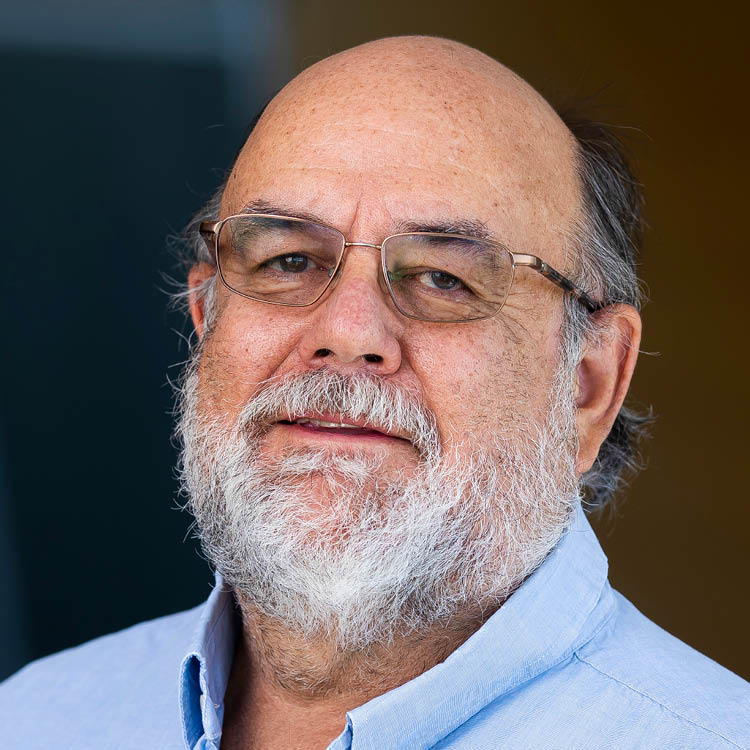
Presenter: Ben Clarke, PhD, Professor in the Department of Biomedical Sciences at University of Minnesota Medical School, Duluth Campus
About Dr. Clarke: Ben Clarke is a Professor in the Department of Biomedical Sciences at the University of Minnesota Medical School, Duluth Campus. Dr. Clarke obtained a PhD in Biochemistry from the University of Texas Medical Branch in 1986 with subsequent post-doctoral training at the University of Texas MD Anderson Tumor Hospital. He moved to the Department of Biophysics and Physiology at the University of Alabama as an assistant professor. In 1994, Dr. Clarke joined the University of Minnesota Medical School, Duluth Campus. He is an enrolled member of the Grand Portage Band of Ojibwe and has participated in community and scholarly support for underserved students with an emphasis on providing academic opportunities for Native Americans from local and regional communities. He has served as the faculty advisor for the Duluth Chapter for the American Indian Science and Engineering Society, is a past member of the Minority Advisory Committee for the American Society for Cell Biology, and he currently serves on the Native American/Indigenous Affairs Committee for the Society for the Advancement of Chicanos/Hispanics and Native Americans in Science. Since 1988, Dr. Clarke has served on numerous advisory and review committees for the National Institutes of Health since 1988. In his free time, he enjoys water activities in the Boundary Waters and the Quetico wilderness regions.
About the presentation:
Learn about how the Pathways to Advance Degrees in the Life Sciences (PADLS) was established in 2000 at the University of Minnesota Medical School, Duluth Campus, to provide academic support and professional development for underserved students enrolled at Lake Superior College, Fond du Lac Tribal and Community College, and the University of Minnesota Duluth. The PADLS program targets students from underserved communities from first generation, low-income, or indigenous families from the Arrowhead region of Minnesota and provides an introduction to careers in biomedical research.
In this special session, we will address these questions as we aim to prepare underserved students for the competitive rigors of medical and graduate school at the University of Minnesota:
- What are some of the historical/current challenges that underserved students face in achieving advanced degrees in medicine and in the biomedical sciences?
- What challenges do these students face that should receive greater attention from the Medical School?
- What is the value of outreach to underserved communities to meet the expectations for a Land Grant Institution?
- What are some critical needs to raise the visibility of the PADLS program and other outreach initiatives in the Medical School to Native communities?
Watch the lecture.
View the slides.
View the transcript.
Sept. 14, 2022: Understanding and Responding to Organizational Stress
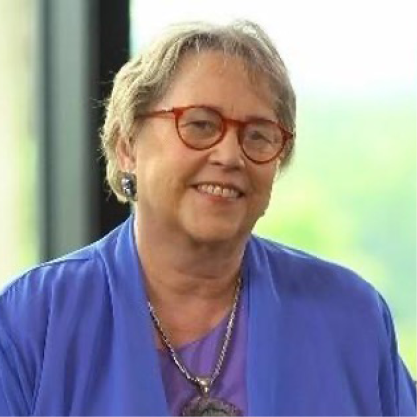
Presenter: Dr. Sandra L. Bloom is a Board-Certified psychiatrist, graduate of Temple University School of Medicine and currently Associate Professor, Health Management and Policy at the Dornsife School of Public Health, Drexel University.
For the past thirty years, Dr. Bloom has done pioneering work in the field of traumatic stress studies and is a past President of the International Society for Traumatic Stress Studies. Dr. Bloom originated and has written three books about the Sanctuary Model and in 2020 introduced a new, online organizational approach called Creating Presence. Dr. Bloom is currently chairing a national organization, CTIPP – The Campaign for Trauma-Informed Policy and Practice - whose goal is to advocate for public policies and programs at the federal, state, local and tribal levels that incorporate up-to-date scientific findings regarding the relationship between trauma across the lifespan and many social and health problems. CTIPP was awarded the Distinguished Service Award for 2019 by the American Psychiatric Association.
About the presentation: Is there a crisis in the healthcare workforce? If you work in the system, you may consider that a silly question since there undoubtedly is a crisis: not enough qualified people to do increasingly challenging work; long wait lists to receive service; no time; increasing demands of paperwork; inadequate funding; patients who are struggling physically, emotionally, economically while hoping to get all of that relieved by someone. But what can be done when sources of stress are all around us? In this presentation, Dr. Sandra Bloom will discuss the multiple ways that stress impacts us, not only as individuals but collectively when we work within organizations. She will then suggest some aspects of what we can do – as individuals and collectively – to improve our workplace experiences.
Learning Objectives:
- Participants will be able to consider sources of burnout, moral distress and moral injury
- Participants will be able to describe manifestations of organization stress and parallel process
- Participants will learn some simple measures to counteract the impacts of stress
Presentation Resources:
- Watch the lecture.
- View the slides.
- View the transcript.
- Watch the extended Q&A session.
AUG. 10, 2022: OUR HOUSE: TRUST AND BELONGINGNESS AS KEY INGREDIENTS FOR ACADEMIC HEALTH CENTERS
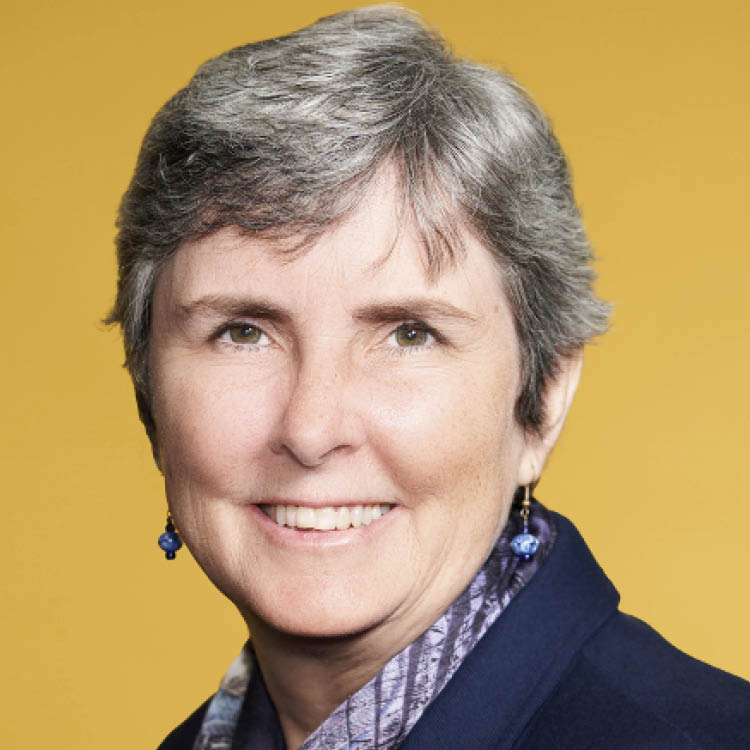
Presenter: Jill Foster, MD, Professor of Pediatrics, Associate Dean of DEI Pipelines, Division Director for Pediatric Infectious Diseases
Dr. Foster has been at the UMN-Twin Cities for two years focusing her efforts on development of pipelines for those who are underrepresented in medicine and COVID-related issues, especially in the area of vaccine hesitancy. Prior to coming to Minnesota, she was at Drexel University College of Medicine as the Director of the Dorothy Mann Center for Pediatric and Adolescent HIV and in medical education, as well as taking an interval five-year detour from academic medicine into an industry sponsored philanthropic public health initiative around bloodborne viral diseases.
About the presentation: Individual need for belonging impacts organizations most when individuals do not feel that they are members of the team. They may feel like imposters, and/or they may not feel connected to the mission. For learners and trainees this is especially important, so Dr. Foster will outline areas of potential concern and solutions to optimize team belongingness and trust.
Watch the lecture.
View the transcript.
JULY 13, 2022: GOING FROM ABLE TO UNABLE TO DISABLED: A PHYSICIAN’S PERSPECTIVE OF CHALLENGES AND OPPORTUNITIES IN ACADEMIC MEDICINE
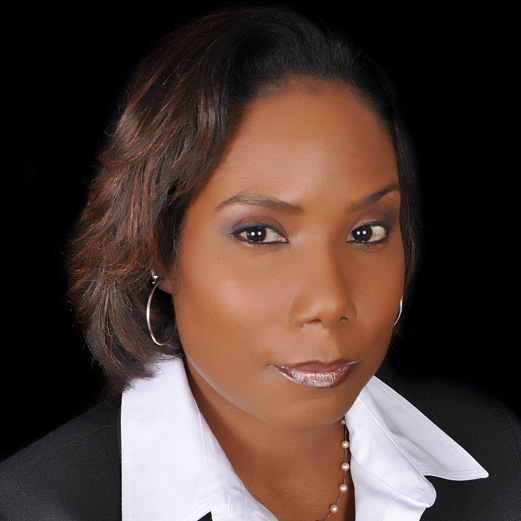
Presenter: Linda Barry, MD, MPH, FACS, Associate Professor of Surgery and Director of the Office of Multicultural & Community Affairs at University of Connecticut (UConn) School of Medicine and Interim Director of UConn Health Disparities Institute
Everyone is one illness or accident away from experiencing a disability that can change their life trajectory. It is a stark contrast that in academic medicine, where treating such patients is the mission, many academic institutions’ policies are often not adept in accommodating those with disabilities in work and learning environments. Dr. Barry will share a personal account of the unexpected, tumultuous journey of becoming a disabled surgeon, issues of intersectionality and challenging the status quo, and she will help identify opportunities for the academic medicine community to be more inclusive through action and policy.
Watch the lecture.
Resources:
JUNE 8, 2022: DEI IN THE DEPARTMENT OF PEDIATRICS AND BUILDING SPACE FOR INCLUSIVE EXCELLENCE WITH UPRIME
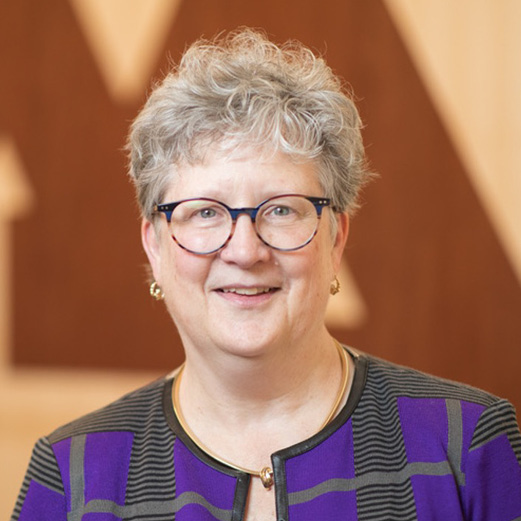
DEI in the Department of Pediatrics
Presenter: Catherine Bendel, MD, Associate Professor of Pediatrics, Division of Neonatology; Vice Chair for Equity, Diversity and Inclusion, Department of Pediatrics
Dr. Bendel will present updates on successful DEI initiatives in the Department of Pediatrics. She will focus on priorities for making DEI everyone’s everyday work, in particular with work done by the Equity, Diversity and Inclusion Council. Additionally, she will describe pipeline awards and educational efforts, including Health Equity Rounds.
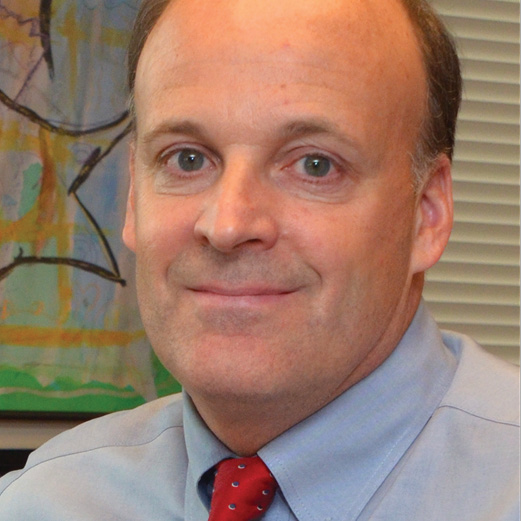
Building Space for Inclusive Excellence With UPRIME
Presenter: Joseph M. Metzger, PhD, Maurice B. Visscher Endowed Land-Grant Chair in Physiology; Professor and Chair, Department of Integrative Biology and Physiology
Actively promoting unfettered access opportunities for all is an effective and proactive mechanism to ensure attaining the very best in merit-based achievement in academia and beyond. For under-represented groups, significant barriers can and do exist in the unrestricted access to opportunities, and the disparities that result are a driving component of predicting future success for students. Learn how the Undergraduate Physiology Research in Medicine and Education (UPRIME) program engages in a holistic approach focused on building a space for inclusive excellence where students can acquire the tools and resources they need for success.
Resources:
May 11, 2022: Retention and Promotion of Women Faculty in Academic Medicine
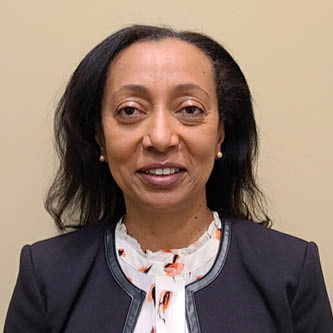
Presenter: Rahel Ghebre, M.D., MPH (She/Her) Professor and Co-Vice Chair on Diversity, Equity and Inclusion, Division of Gynecologic Oncology, Department of Obstetrics, Gynecology and Women's Health, Associate Director of Justice, Equity, Diversity and Inclusion at the Masonic Cancer Center, Lead for Global Women’s Health Research in the Center for Global Health and Social Responsibility
Advancing our mission of gender equity is critical to the long-term success of our institution. Today less than 30% of women are ultimately promoted to full professor, an important step toward senior leadership. We will explore the experience of women faculty in the promotion process at our Medical School and discuss ongoing programs to improve retention and promotion of women faculty.
Resources:
April 13, 2022: The Power of Collaboration and Innovation: Diversity, Equity, Inclusion — Where Are We Now? An Update
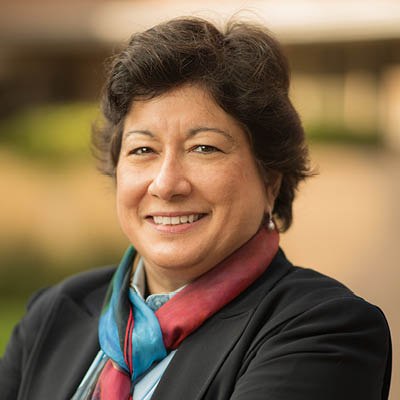
Presenter: Ana Núñez, MD, FACP, Vice Dean of Diversity, Equity and Inclusion and Professor of Medicine in the Division of General Internal Medicine at the U of M Medical School and Integration Strategist in the Clinical and Translational Science Institute (CTSI) (she/her/hers)
Hear about some of the amazing work at the Medical School in diversity, equity and inclusion. Dr. Núñez will highlight efforts, accomplishments and opportunities for engagement.
March 9, 2022: Research with Tribal Nations: Exploring Best Practices
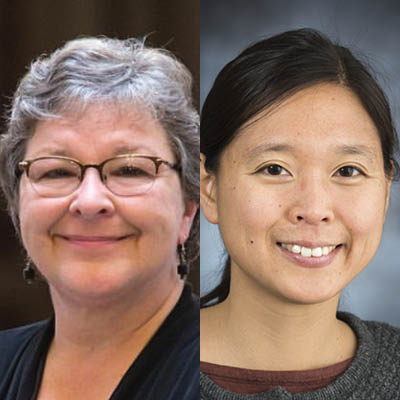
Presenters: Karen Diver, Senior Advisor to the President for Native American Affairs, and G.-H. Crystal Ng, PhD, Associate Professor in the Department of Earth & Environmental Sciences
Tribal Nations are distinct governments that are responsible for providing for the well-being of their people, culture and lands. Too often in the past, they have been used by researchers without their consent, and had their knowledge, places and peoples exploited. This session explains tribal sovereignty, relationship building and tribally engaged and led best practices in research.
Resources:
Presentation Slides - Research with Tribal Nations: Exploring Best Practices
February 9, 2022: Global Public Health Emergencies & Population Health
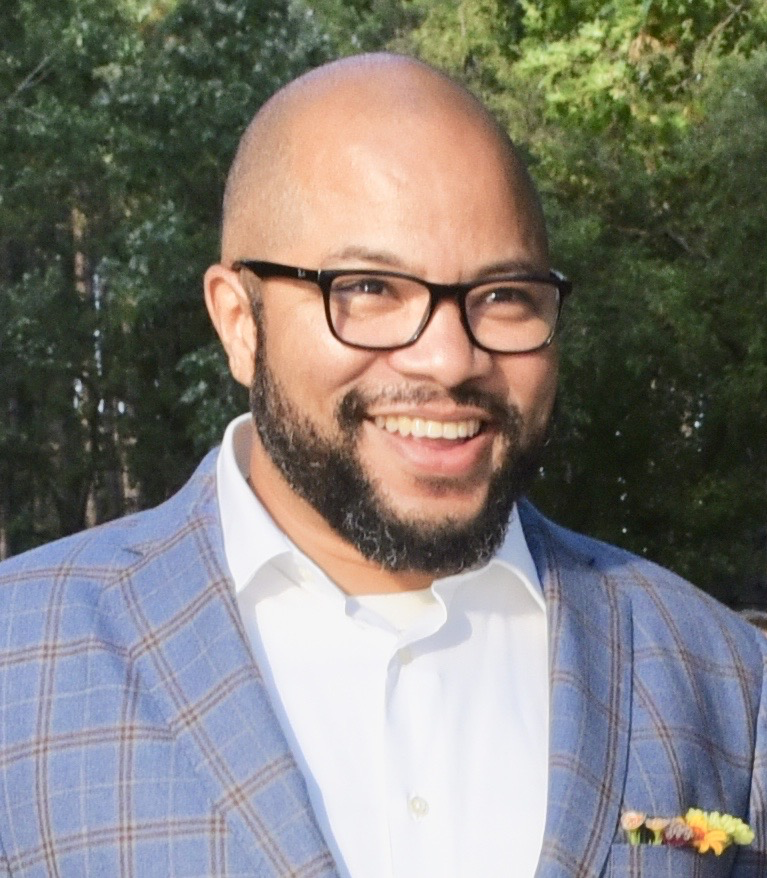
Presenter: Dziwe Willard Ntaba, MD, MPH, Assistant Professor in the Department of Emergency Medicine at the University of Minnesota Medical School and Emergency Physician with M Health Fairview
Drawing from lessons learned in Global Health — both internationally and domestically — how can you act individually to better serve collective interests? How can we as a group adapt and apply lessons from the past to meet the challenges in the present moment? What proven strategies and paradigm shifts must we engage with to ensure durable solutions into the future? This presentation addresses those questions.
Resources:
Presentation Slides: Global Public Health Emergencies & Population Health
Kigutu Hospital & Women’s Health Pavilion Virtual Tour, Fe. 15th, 2022 | 12:00pm
Sign-Up to Learn more/Support Minnesota Opioid Overdose Epidemic
January 12, 2022: Addressing Implicit Bias and Microaggressions
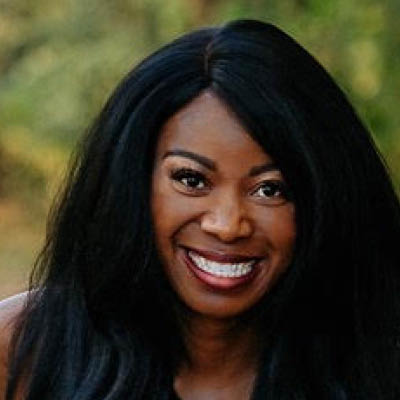
Presenter: Amanda Marie Flowers Peterson, Interim Director of Education & Graduate Assistant for the Office for Equity and Diversity (She/Her/Hers)
This discussion exposes participants to the concept of implicit bias and how it produces microaggressions that can impact the classroom, work and social environments.
For those of who had hoped that our January session could be recorded, we regret that no, that was not an option for us. Below you will find some resources about microaggressions and more.
Responding to your interest and planning for the future, we seek your interest in medical school tailored, practical, action focused future workshops/trainings for the spring/early summer. We plan on having our first session be Putting into Practicing: What is the "Do" in Negotiating Implicit Bias and Microaggressions. If this is of interest, please let us know.
Click here to get added to the early interest list for direct follow up.
Resources:
December 8, 2021: Staff Advancing Diversity & Inclusion: Learning, Growing, & Taking Action
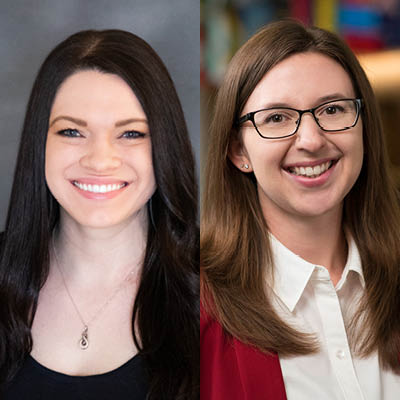
Presenters: Sara Roberts, Program & Project Specialist for Undergraduate Medical Education Curriculum, and Liz Sopdie, PhD, Operations & Program Development Director for the Rural and Metropolitan Physician Associate Program
This presentation introduces the Staff Advancing Diversity and Inclusion (SADI) Committee and focuses on the unique role that staff can play in change efforts as well as highlight the growing demand for DEI efforts focused on staff within our medical school. The presentation includes several ways that staff can get involved with SADI and provide resources curated by SADI for DEI development.
Resources:
Presentation Slides: Staff Advancing Diversity & Inclusion: Learning, Growing, & Taking Action
Staff Advancing Diversity & Inclusion Committee (SADI)
November 10, 2021: Education is a Critical Determinant of Health
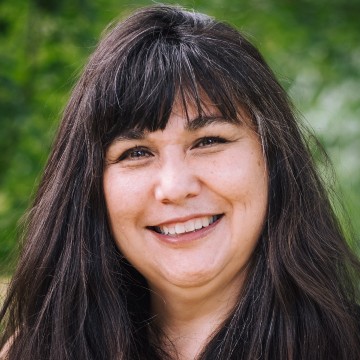
Presenter: Mary J. Owen, MD, Tlingit, director for the Center of American Indian and Minority Health, assistant professor in the Department of Family Medicine and Biobehavioral Health and president for the Association of American Indian Physicians
This presentation discusses how the educational outcomes for American Indian and Alaska Native (AIAN) populations contribute to the significant health disparities faced by AIAN people in Minnesota and the Bemidji region as well as Minnesota programs that are addressing the educational disparities and where more work is needed.
Resources:
Presentation Slides: Education is a Critical Determinant of Health
October 13, 2021: Breast Cancer Champions: Meeting You Where You Live
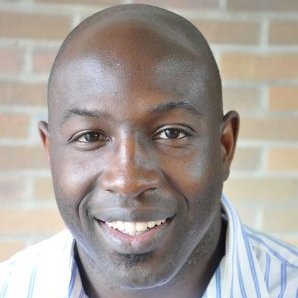
Presenter: David Haynes, PhD, Assistant Professor with the Institute for Health Informatics
Dr. Haynes created reliable estimates of breast cancer screening rates for Minnesota, which was used to create and direct a culturally appropriate peer-to-peer education program. This presentation shares the impact of the program and lessons learned thus far.
Resources:
Presentation Slides: Breast Cancer Champions: Meeting You Where You Live
September 8, 2021: DEI in the Departments - Biochemistry, Molecular Biology and Biophysics & Orthopedic Surgery
Presenters: Santiago Martinez Cifuentes, PhD Candidate, Rivera-Mulia Lab, and Stefani Thomas, PhD, assistant professor in the Department of Laboratory Medicine and Pathology
This presentation highlights the Department of Biochemistry, Molecular Biology and Biophysics' ongoing efforts related to community, education, outreach, policy and recruitment.

Presenters: Aaron Corfield, DPM, assistant professor in the Department of Orthopedic Surgery and Jon Braman, MD, professor in the Department of Orthopedic Surgery
Drs. Corfield and Braman discuss the Department of Orthopedic Surgery's DEI Committee initiatives, including how to implement and enact real change within the department.
Resources:
Presentation Slides: DEI within BMBB: Community, Education, Outreach, Policy and Recruitment
Presentation Slides: Department of Orthopedics - DEI Initiatives
August 11, 2021: Building Communities/Repairing Harm: Restorative Practices in Academic Medicine
Presenters: Ricardo Battaglino, PhD, Melissa Brunsvold, MD, FACS, FCCM, Austin Calhoun, PhD, Cathy McCarty, PhD, MPH, Michele Morrissey, MA, PHR, Amanda Termuhlen, MD
Restorative justice, practices and approaches are rooted in Indigenous culture and focus on creating community, building relationships and healing. The use of restorative practices in academic medicine is a valuable way to improve culture, repair harm and reintegrate those members of the community who have been separated.
Resources
July 14, 2021: How the Pandemic(s) Changed my Advocacy, Research, and DEI Work
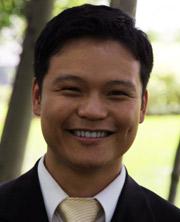
Presenter: Dr. Cuong Pham is an Assistant Professor of Medicine, Division of General Internal Medicine at the University of Minnesota.
In this presentation Cuong Pham, MD, explains how he and his colleagues have found innovative ways to conduct shared, community engaged research and focus on trainee education through multiple public health crises.
Resources:
June 9, 2021: Toward Justice & Equity in the Departments of Family Medicine & Community Health & Neuroscience
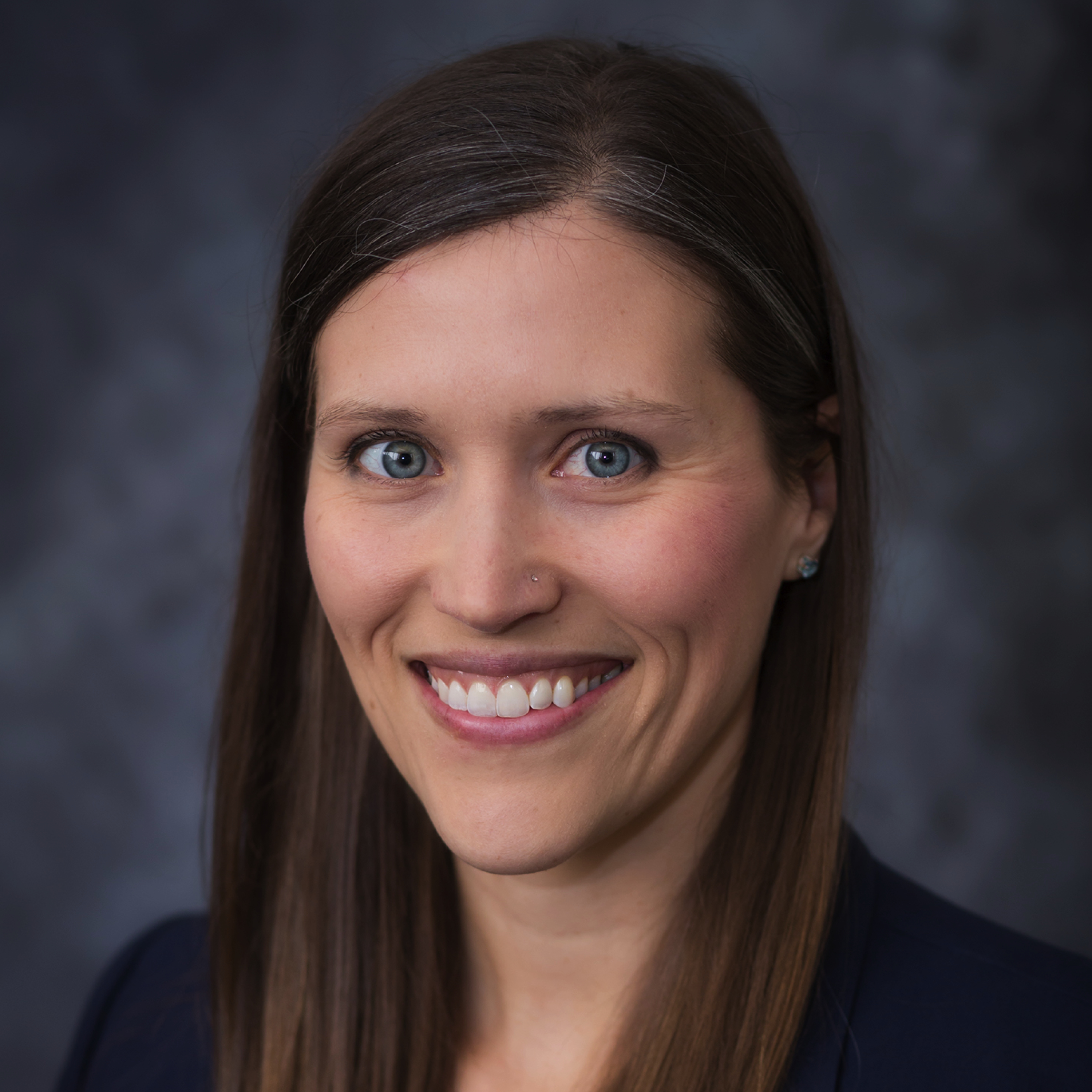
Presenter: Andrea Westby, MD, FAAFP, assistant professor in the Department of Family Medicine and Community Health
In this presentation we discuss the grounding principles, current initiatives and future direction of the Department of Family Medicine and Community Health's JEDI (Justice, Equity, Diversity and Inclusion) council and initiatives.
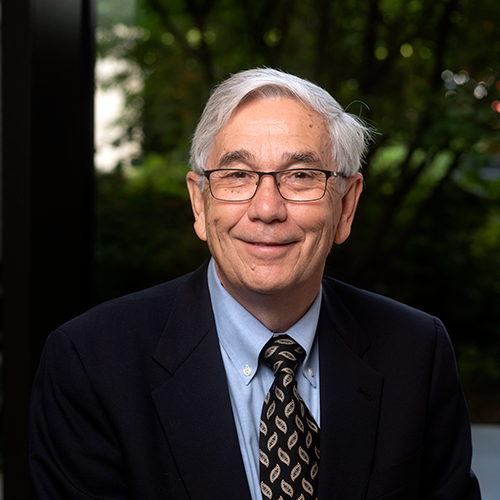
Presenter: Tim Ebner, MD, PhD, professor and head of the Department of Neuroscience
This presentation also highlights the Department of Neuroscience's efforts developing internal and federally funded programs focused on providing opportunities for underrepresented groups in medicine to explore, pursue and build careers in neuroscience.
Resources:
- Response to Unanswered Questions - Family Medicine and Community Health & Neuroscience
- Department of Family Medicine and Community Health Justice, Equity, Diversity, and Inclusion (JEDI) website
- Organizational Framework - Justice, Equity, Diversity, and Inclusion (JEDI) at Department of Family Medicine and Community Health
- Recruitment Toolkit - Reducing Bias and Achieving Equity in Residency Recruitment and Selection
- Relational and Communication Commitments - Department of Family Medicine and Community Health
May 12, 2021: DEI in the Departments - Psychiatry and Surgery
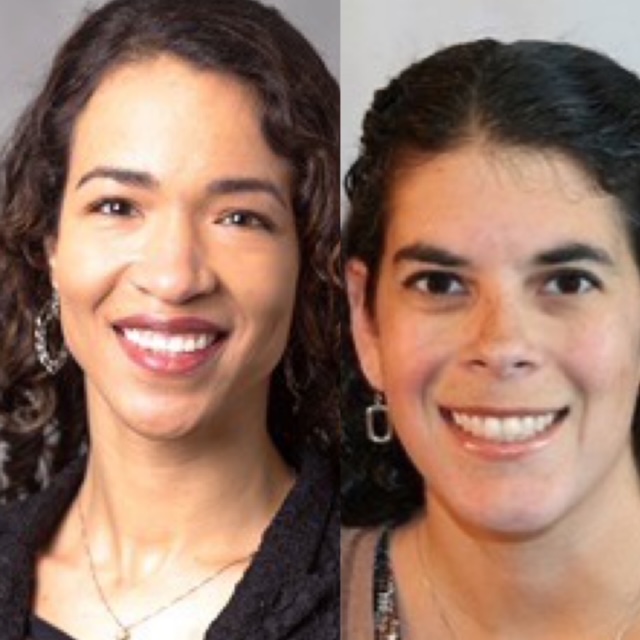
Presenters:
Katie Lingras, PhD, LP, assistant professor in the Department of Psychiatry and Behavioral Sciences
Danielle Vrieze, PhD, LP, assistant professor in the Department of Psychiatry and Behavioral Sciences
Drs. Danielle Vrieze and Katie Lingras provide an overview of a six-step model for creating a committee as a vehicle for championing Medical School DEI efforts at the department level. They will provide examples of their work with the goal for participants to tailor and apply each step to their own departments’ DEI efforts.
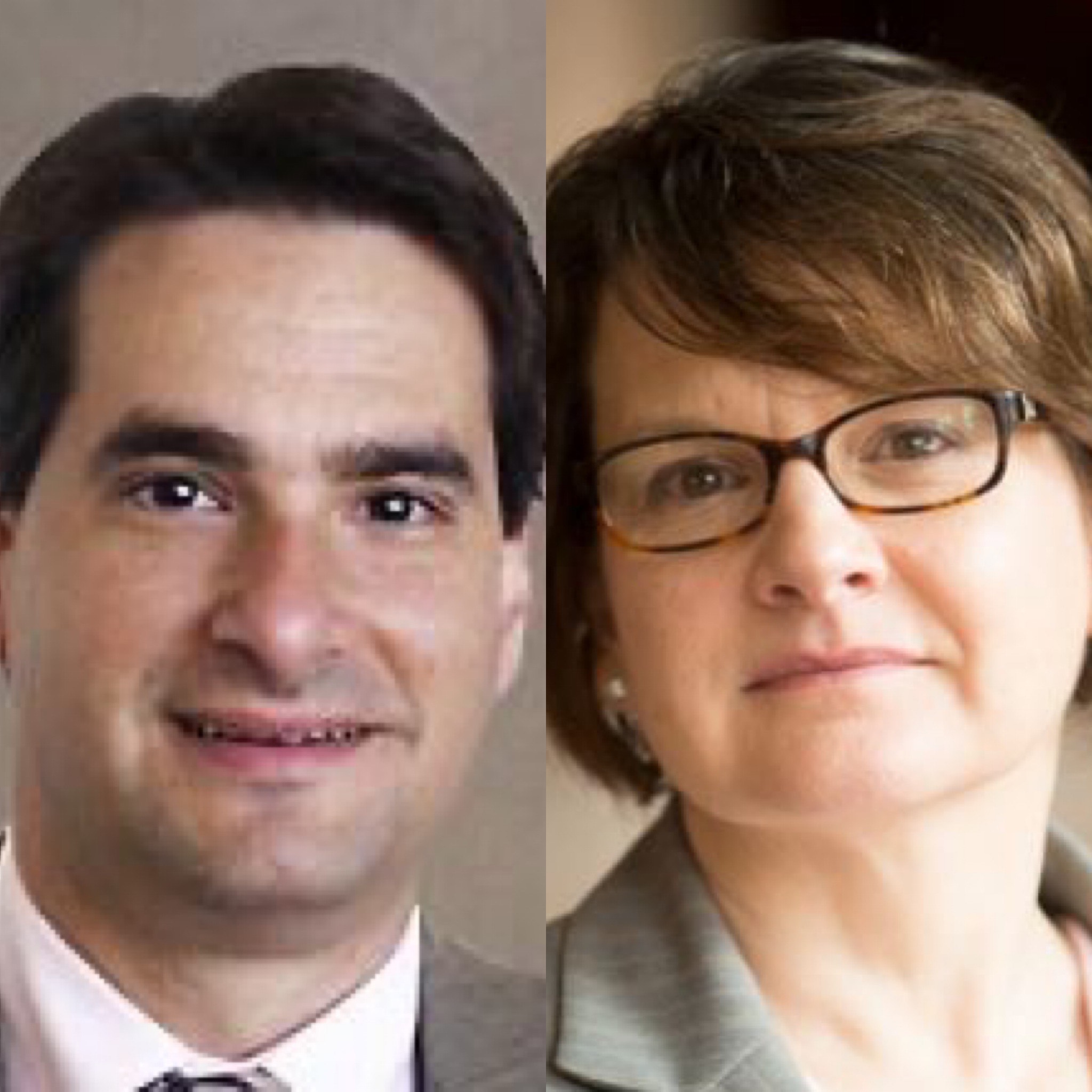
Presenters:
Daniel Saltzman, MD, PhD, professor in the Department of Surgery
Lisa Rogers, MS, MPH, director of Research Operations
This presentation describes the Department of Surgery's DEI Council, provide some groundwork and resources to implement a similar model, and highlight new initiatives and early wins.
Resources:
April 14, 2021: The Purpose of Holistic Review and Strategies for Implementation
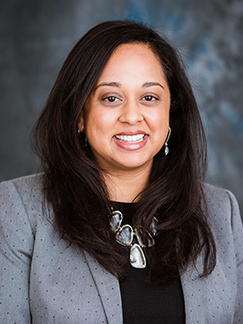
Presenter: Dimple Patel, MS Associate Dean of Admissions, Medical School
Dimple Patel shares the principles of holistic review in medical school admissions programs. She will highlight the importance of holistic review, share outcomes and discuss how these same principles can be used in other selection processes.
March 10, 2021: Obstetric Fistula: A Window into Disparities in Women's Health and A Call for Reimagining Global Health Engagements
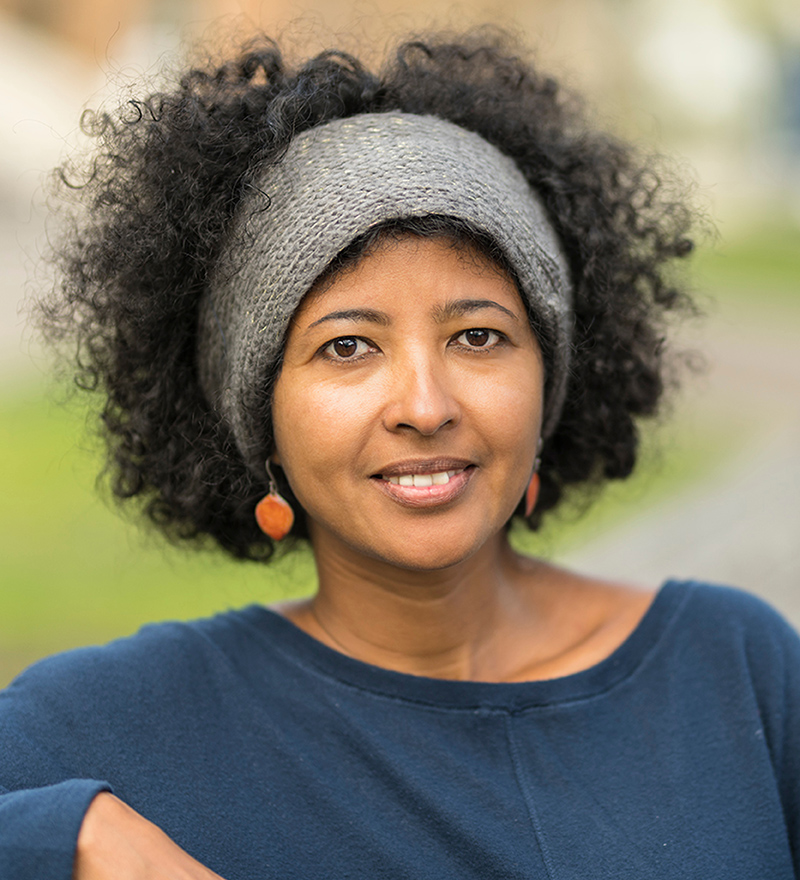
Presenter: Rahel Mardos, MD, MCR Associate Professor, Department of Obstetrics, Gynecology and Women's Health (OBGYN)
Dr. Nardos will discuss the state of maternal health globally using obstetric fistula as a window into the vast inequities in maternal outcomes. She will highlight the structural and social determinants of disparities in maternal health and put forth a call to action for meaningful and impactful engagement. This lecture is part of the International Women's Day webinar series: Gender, COVID-19, and Human Rights highlighting key voices in the field of gender, health, and human rights.
February 10, 2021: Developmental Cognitive Neuroscience in the Era of Big Data
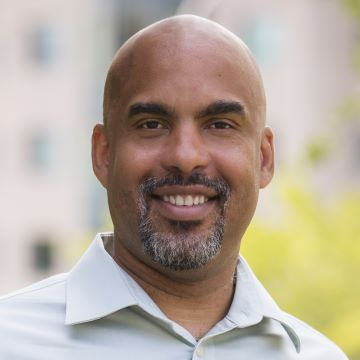
Presenter: Damien Fair, PA-C, PHD Professor, Department of Pediatrics
The field of Cognitive Neuroscience and, in particular, Developmental Cognitive Neuroscience continues to evolve. New concepts and new technologies, but also new challenges and new pitfalls have emerged in the field. On one hand, these growing pains have highlighted the promise of the work for understanding complex human brain function and its translational potential; but, on the other hand, it has led to frustratingly slow progress. Current modern-day approaches toward characterizing correspondence of complex behavioral phenotypes to networks and systems in the brain requires new sample collection strategies, new study designs, and new analytic strategies – a reality the field has been slow to realize. In the current talk I will highlight some of the pitfalls of the field, as well as, feature new directions that will put the field on more solid footing moving forward.
January 13, 2021: "From Here to the Future" Diversity, Equity, Inclusion Transformation To Promote Vitality and Excellence. Where Are We Now?
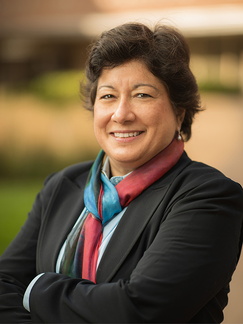
Presenter: Ana Núñez, MD, FACP is a Professor of General Internal Medicine and Vice Dean for Diversity, Equity and Inclusion at the University of Minnesota
Please join us for a special edition of the Dean’s Special Lecture Series. To kick off the New Year, Vice Dean Núňez will discuss what she’s learned in the first few months of her new position and the priorities that are taking shape as she collaborates with others across the Medical School, M Health Fairview, the University and communities we serve. The session will include a presentation and Q&A.
December 9, 2020: Comprehensive Gender Care
Presenters: The Center for Women in Medicine and Science
November 11, 2020: Addressing Whiteness and White Accountability: A White Consciousness Conversation
October 19, 2020: Communicating about Racism with Black Adolescents
September 9, 2020: Engaging Healthcare Inequality through Healthcare Career Cascading Mentorship Program
Presenter: Renee Crichlow, MD